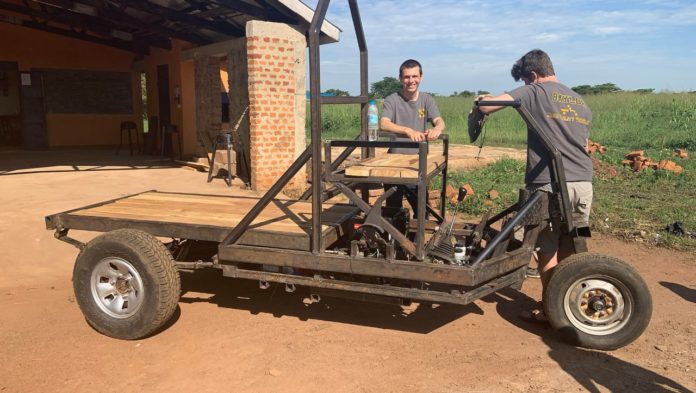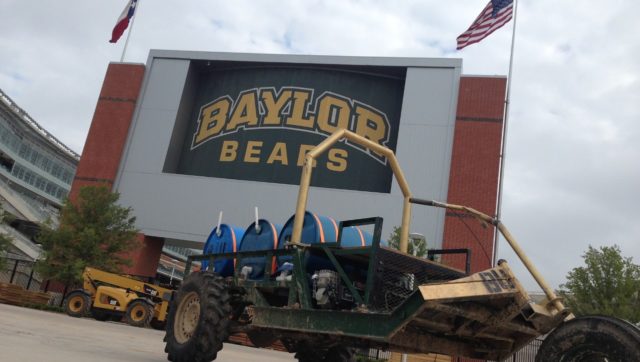
By Mariah Bennett | Staff Writer
This year, there are no ‘brakes’ in the Basic Utility Vehicle at Baylor — a humanitarian engineering organization founded in August 2014. Made up of undergraduate engineering students, the club uses its classroom knowledge and technical skills to bring transportation assistance to communities and people in need.
“We’re a group of students who are trying to provide transportation assistance to people in countries where that isn’t an easy thing to acquire,” Houston senior and BUV president Joshua Biegler said.
Biegler said that on average, the club has built one vehicle a year. The organization accomplishes this by designing and building vehicles that are easy to maintain and repair. The club members help build the vehicles themselves and send them to wherever they are needed. Sometimes, they build it on site if the car is meant to be for another country.
“Whether that be building it in Waco and shipping it — like we’ve done for people in Haiti — or we’ve gone to Uganda twice now and built in-country” Biegler said.
Dr. Douglas E. Smith, associate professor of mechanical engineering and BUV adviser, said the club went to Uganda in May 2018 and May 2019. Smith has been involved with the organization for a long time, doing groundwork during its first year.
Smith said he thinks the club is the perfect fit for Baylor’s mission to reach out and help others.
“The purpose of BUV is meant to help out disadvantaged people in underdeveloped or developing countries,” Smith said.
Although Austin senior Caden Banta is not a member, he said he has known of the organization since he first came to Baylor as a mechanical engineering major.
“In my personal opinion, I think it’s fantastic,” Banta said. “They develop a solution here, donate the vehicle and actually show them how to make the vehicle. There’s a lot here that’s … doing lots of good.”
The club specifically focuses on tractor-like vehicles that allow for the transportation of food, water and crops to market. Biegler said the vehicles are three-wheeled and made out of steel tubing with a flatbed, similar to a pickup truck.
“They’re relatively large vehicles,” Biegler said. “They’re driven by low horsepower motors that are whatever we can find.”
In the United States, the organization uses Briggs and Stratton lawn mower motors. In other countries, it is a different story; Biegler said that in the past, the club has used one-cylinder diesel motors in Uganda.
The organization currently has a fluctuating number of 10 to 15 members. Biegler said that in the future, the organization wants to educate members more on subjects like welding and how to build and adjust the design of the BUV.
“[I want to] build a BUV 2.0 — something that will be lighter, easier to manufacture in-country … places like Uganda,” Biegler said. “We want all the members of the club to be involved with that process.”
Biegler said the club has left the beginning student organization phase and is doing more complicated things, such as setting up trips to Uganda and redesigning the original design.
“We’re trying to update ourselves, make it so that we’re evolving and improving,” Biegler said. “We had a really good foundation and base. We’re trying to update that for our current needs.”






